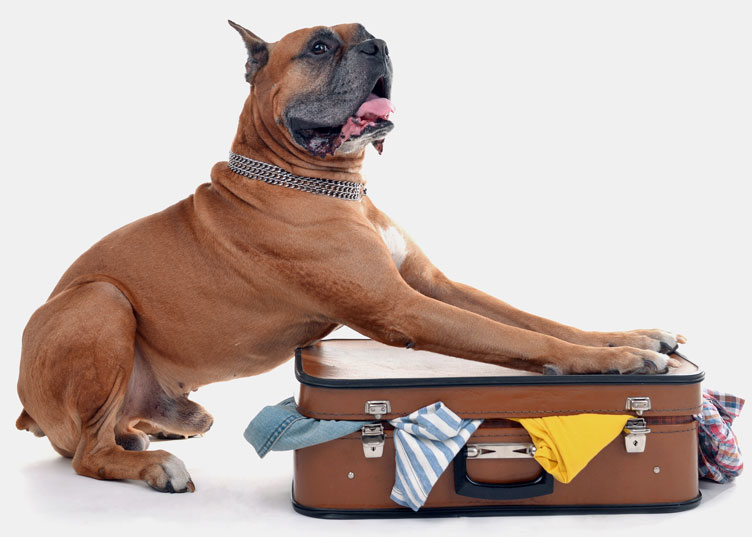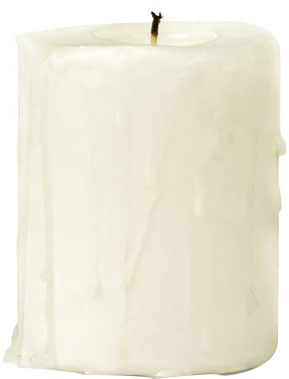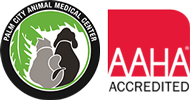Got Questions?
You’ve come to the right place!
Animal Care
The first thing you should do is to schedule an appointment with a veterinarian to check for any health problems. During this visit, your vet will review the proper diet for your new animal, the most suitable environment, grooming, vaccines and inoculations schedule, and preventative health care for your pet. This preliminary visit will help you become more familiar and comfortable caring for your new family member.
Yes. While we do care for many cats and dogs, we have a well-trained staff prepared to care for a wide variety of pets, including rabbits, guinea pigs, birds, snakes and turtles.
Yes, there are a number of companies that offer insurance for pets. If you have such a policy, our staff will assist you if you have questions about how it works.
The easiest way to prevent bad breath is to brush your dog’s teeth. Ideally, you should brush them on a daily basis, but 2-3 times a week is more realistic and can be just as effective. If you still notice a slight problem, veterinarians sell special treats and chews, which reduce plaque buildup and bad breath. If the problem is more persistent, liquid enzymes may also be used.


Vaccinations
Vaccines are given by veterinarians to ensure the health of your pet and to prevent a variety of fatal diseases common in household animals. Vaccines are very important to pet health, as many veterinarians have noted the re-emergence of fatal animal diseases in geographic areas where vaccines are not used. Vaccines are also the best disease prevention method available.
Vaccines have been shown to be very effective in preventing many serious diseases for pets. However, none can be scientifically proven to be 100 percent accurate and vaccines don’t address all medical problems that may occur in your pet. Preventive measures, combined with regular veterinary appointments, are the best way to ensure the long-term health of your animal.
Occasionally, an immediate but non-serious reaction may occur after a vaccination is administered; however, these reactions are very rare and not life threatening. Minor concerns will always exist with regard to vaccines, but many of the perceived risks are rarely proven to be real threats to your animal’s health. The benefits of vaccinating your pet(s) far outweigh the potential risks for disease if left untreated.
This is not a decision that you have to make on you own. Your veterinarian will recommend which vaccines are most important for your pet based on the type of animal and particular situation.
Your veterinarian will assist you in determining the proper vaccine schedule for your pet(s). It is essential to make an annual appointment for your pet to be examined, at which time you can discuss vaccinations. Some vaccines are required on an annual basis, while others are only necessary every three years. These appointments are also vital for early detection of health issues.
When contemplating the leukemia vaccine for your cat(s), the lifestyle of your animal should be taken into consideration. Feline Leukemia is exclusively passed thorough hissing and/or sneezing; therefore, cats that remain strictly indoors will not need the vaccine. However, cats that are allowed outside, as well as indoor cats that have access to screened patios, should be treated with the leukemia vaccine because the disease can be passed directly from one animal to the next, even through screens.
Obedience Training
Animals are very good at manipulating their owners in their early years. Owners often attribute certain behavioral issues to the animal’s young age, and hope their pet will outgrow the problem. This type of owner-pet relationship can lead to larger problems later, as you tire of your animal’s behavior and the animal is no longer able to elicit the response they expect from you. Talk to your veterinarian about these issues and, if needed, a trainer or a behaviorist who can help both you and your pet establish a healthier, more appropriate relationship.
The first step in avoiding accidents around the home is to make sure the accidents are not caused by a more serious medical problem. We recommend that you make an appointment with your veterinarian to have your cat evaluated. Once your doctor understands the nature of the problem, he or she will then be able to discuss the options you have for solving your problem.
It is very important to remember not to coddle your dog when they are behaving this way, as they will associate their fear-based behavior as a way to get attention on an ongoing basis. Other training options and medications are also available for animals with greater anxiety issues.


Grooming
The breed of your dog and whether they have long or short hair will determine appropriate grooming habits. Generally, you should brush your dog often enough to ensure that their hair does not become matted, and bathe them when needed — but not too frequently. Use only dog shampoo when bathing your dog, as human shampoo is too harsh for their skin and coat.
The frequency of professional grooming will depend on the breed of your pet. Animals with longer coats will require grooming every four to six weeks, while animals with shorter hair require less maintenance and less frequent grooming. Palm City Animal Clinic is able to provide your pet(s) with professional grooming services through our Snips and Snoozes grooming & boarding center.
Cats groom themselves and only require minimal bathing. If you notice the cat’s hair becoming matted, it will be necessary to brush them more often. If you notice that matted fur is forming only along your cat’s back, this is a sign that they cannot reach this area and may be overweight. You should discuss this problem with your veterinarian and follow the recommended diet for your cat.
Longhaired cats are especially prone to developing hairballs, but many pet stores offer gel tablets, specialty food, and treats that can prevent this problem. Talk to your vet about the best preventive options available for your cat or if you notice a persistent problem.
Diet
Each dog may require a different feeding regimen. In general, puppies should be fed good quality puppy food three times per day until they are four months old, and two times a day after that. After 10 months of age, adult dog food should be given until your dog reaches the age of about 8 – 10 years old, and senior dog food should be fed from that point forward.
As dogs age, they usually let us know how often they want to eat. Free feeding (leaving food down during the day for your pet to eat) is appropriate as long as your dog is not overweight. There are also specialty diet foods available, which you can discuss with your veterinarian.
Never allow your dog to chew on real bones, as splinters of bone can get stuck in your dog’s mouth and/or intestines, which can result in serious intestinal problems. Dogs should only chew on safe alternatives, such as bones made of rawhide, which are available at most pet stores.
Kittens should be fed kitten food until they reach 10 months old. At 10 months, we recommend switching to adult cat food until they are around 8 years old, after which you should switch to food formulated for senior cats. There are also prescription-based and other specialty dietary options available for your cat, which you can discuss with your veterinarian.
Palm City Animal Clinic has a doctor on staff that specializes in treating exotic pets ranging from rabbits to reptiles. You can make an appointment to meet with Dr. Matt Schmidt and he will be pleased to advise you on the appropriate special dietary needs for your exotic pet.


Travel & Boarding
When it comes to long-term pet sitting, you have multiple options. Boarding your pet(s) at a kennel ensures that that they will be cared for by professionals, and some specialty kennels exist, providing your animal with first-class treatment and facilities. Palm City Animal Clinic has boarding services available for your animals, and will provide them with all the love and care they will need in your absence. We are also booking now for the new luxury boarding center, which is part of our new animal hospital, Palm City Animal Medical Center, scheduled to open by the end of this year. If you’re interested in boarding your pet with us please book soon, as bookings are already coming in.
Leaving your cat or dog with friends or pet sitters provides your animal the comfort of their home environment; however it is important to only leave your pet(s) with someone you know and trust well. When hiring a professional pet sitter, be sure to check the credentials of your prospect, as they should be bonded.
The first thing you should do is to evaluate your pet’s stress level while simply putting them in the car and driving around town. If your pet is OK, that is a sign they should be able to handle longer distances well. As a rule, do not feed your pet(s) before leaving for long distance car travel and make sure to stop for water and bathroom breaks just as you would for yourself. If your pet does experience anxiety in the car, discuss with your veterinarian the possibility of prescription medicine to help calm their nerves.
When traveling with your pet, there are certain things that you must be aware of. First, all pets need a certificate of health in order to travel by air. We can provide you with this certificate when you bring your pet in for a check-up to make sure they’re healthy and able to travel.
Small dogs and cats have the option of traveling under your airplane seat if they can fit in an appropriate-sized kennel (check with your airline provider for their specific regulations). Larger animals will travel in the pressurized, temperature-controlled cargo hold underneath the airplane. It is important to be aware of the outside temperature if you have extended layovers between trips, as your pet will be in close proximity to the tarmac and may be exposed to extreme temperatures. Please discuss this with us beforehand
Saying Goodbye
This is the most difficult decision any pet owner confronts. However, when your pet’s quality of life is diminishing, the option to let your animal go is worthy of consideration. It is important to remember that the decision is yours to make, not your family and not your friends. If your animal is suffering and you come to realize that the time is right, please call us. We will help you take the necessary steps and support you along the way.
It is important to explain to children and the rest of the family that the pet was very sick and that you did all that you could do. You’ll also want to make it clear to children that their pet was not going to get well again. Your family can find reassurance that the animal is now relieved from its suffering, as their quality of life was diminishing.
The bond between a pet and its owner can be very strong, and the loss of a pet is difficult and, for some, devastating. We want you to know that you have the right to to grieve your loss, and it is healthy for you to do so. If you feel uncomfortable talking to those in your usual network of support, please feel free to ask us for assistance, if you’d like the names of support groups or traditional therapists in the area. Some of us feel better talking with someone outside of our family and friends. There is no right or wrong way to grieve, but we encourage you to let us know if you need advice or guidance in this regard.
Our staff at Palm City Animal Clinic wants to ensure that you are provided multiple options following the passing of your animal. We provide services for general cremation, as well as private cremation, in which you have the option of keeping your pet’s ashes. If, instead, you would like to bring your pet home to be buried and honored in a special place, our clinic is prepared to conduct the procedure necessary to make that possible.
The decision to put a healthy animal down should only be made if that animal is extremely aggressive. All healthy animals can find a new home through animal rescue shelters. If you are uncertain, please discuss the situation with us. Making the best decision is crucial, and never more so than when you or others might be at risk of being harmed by an aggressive pet.
Palm City Animal Medical Center provides a paw print to owners of all animals who have passed, and the option to honor your pet with a memorial brick is available as well.



